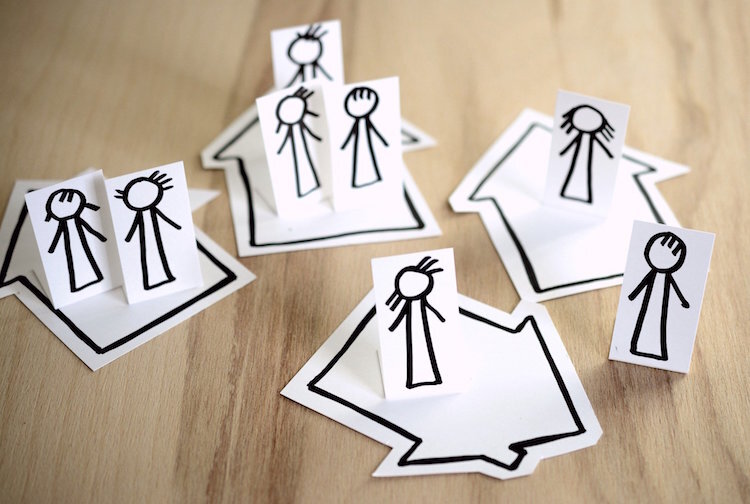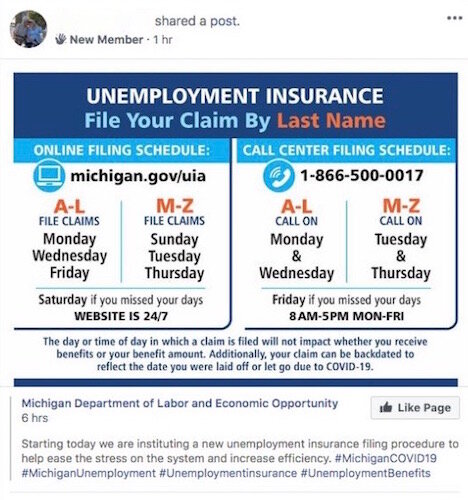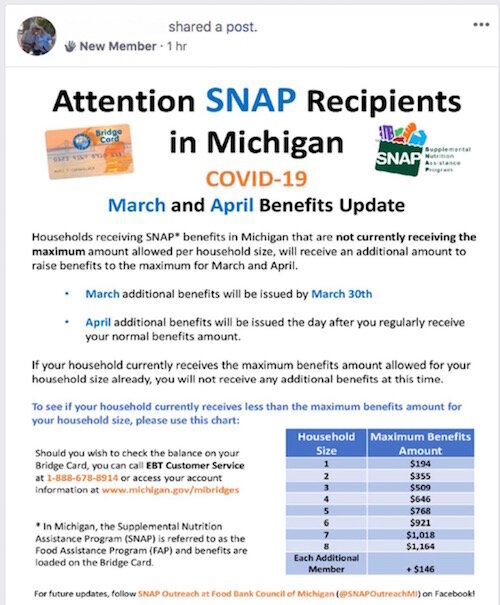Battle Creek Michigan Area Covid19/Coronavirus Grassroots Resource Network rises to help neighbors
Battle Creek residents saw a need and decided to work together to help those they could. The Battle Creek Michigan Area Covid19/Coronavirus Grassroots Resource Network was launched.
Editor’s Note: This is part of On the Ground Battle Creek’s daily coverage of COVID-19 and the community response to the personal, physical, and economic ramifications of the spread of the disease. If you have a story or update to share, please contact us here.
When it became obvious that Battle Creek was not going to be immune to the impact of the coronavirus and that residents, especially the most vulnerable, didn’t have the luxury of waiting for assistance from the state and Federal government, two women stepped up to begin a local effort.
Their work has resulted in a moderated Facebook page — Battle Creek Michigan Area Covid19/Coronavirus Grassroots Resource Network — that is providing critical information and resources locally while also providing a sense of calm and comfort.
Laura Otte, a lifelong resident of Battle Creek, says the tipping point for her with regard to the potentially devastating impacts of the Coronavirus happened on March 13 as she listened to news reports of the toll the virus was taking in countries around the world. In between trying to acquire new clients for her personal coaching business, she began putting out offers of help on her personal Linkedin and Facebook.
She had done something similar after the brutal windstorms in 2011 that wreaked havoc throughout Battle Creek.
“When Battle Creek had those windstorms, I led a grassroots effort since I already had connections with folks who knew how to mobilize,” Otte says. “Somebody had to do something so I went door-to-door and did needs assessments.”
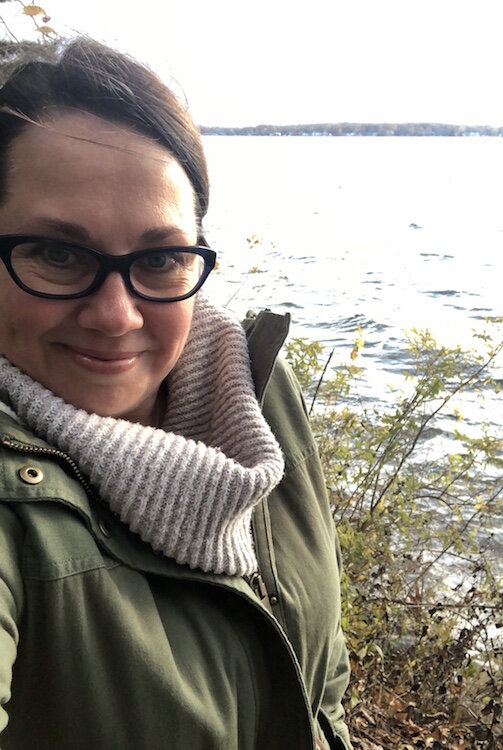
Knowing that in-person contact was not going to be an option with the Coronavirus response, she began looking at how the community could organize remotely and keep its social distancing. Given the responses she received via that initial offer of help, she says she could tell that people here were looking for a place to start.
She reached out to leaders in the community who had expertise in different areas, including Jaimie Fales who co-moderates the grassroots network Facebook page. Fales, the Church and Building Administrator for First Congregational Church, was one of an original group of 17 that has now grown to more than 1,000 contributors and followers of that Facebook page.
“Laura is a colleague who I’ve worked with doing facilitation and lots of other work in the nonprofit world. She’s someone I trust,” Fales says. “When people get panicky and we know there are a lot of needs, it’s helpful to have trusting relationships in the nonprofit world.”
When Otte relayed her thoughts about the importance of connecting people to resources and creating a place to do that, Fales says she was all-in.
“Laura wanted to create a space that was hyper-local where people could easily connect to information,” Fales says.
Otte says Facebook was the ideal platform because it’s free and the majority of residents know how to use it and could more easily connect with service providers who also have Facebook pages.
“I knew this would be a place where people could convene locally,” she says.
The Facebook page is an information hub where the community can find volunteer opportunities and share details on resources such as where to find what they might need.
Information already shared in that space has included meal site locations for local students whose families relied on free or reduced breakfast and lunch offered at their schools, which have been closed since March 16; free diaper distribution sites; volunteer opportunities; and most recently how to apply for unemployment on Michigan’s Unemployment Insurance Agency website.
What visitors to the Facebook page won’t see are posts designed to create unwarranted fears about the coronavirus, or that engage in political finger-pointing, or place blame with organizations and individuals for what hasn’t been done.
“We’re not trying to control who can say what but we want it to be a place for resources and information that could keep people alive. We want to filter out any potential diversions to that,” Otte says.
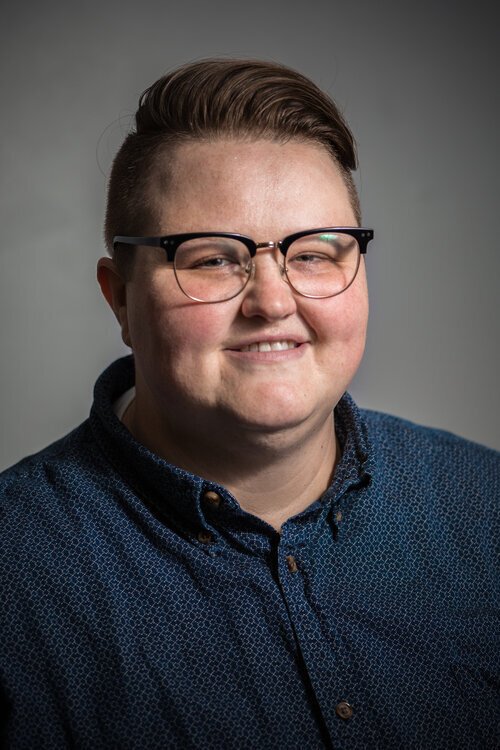
She says she also recognizes that there are people who may be engaging in a Facebook group like hers for the first time and whenever possible she offers positive feedback and an explanation of why their post might not be a good fit.
“With an organization that may be changing its service hours or methods of delivery, it’s absolutely important to get that information first-hand. We want to honor the intent of the page,” Otte says.
Fales says they have has declined as many posts as they have approved because the content doesn’t align with the mission and spirit of the page.
“The Internet is a place where people can misbehave,” they say. “With our page, there is a group of people who can be on the lookout for that. It’s hard to sift through stuff online.
“We wanted to create a space that was easy to navigate and contains reliable and local information. People can find out what the politicians have to say and how bad the virus is anywhere,” Fales says. “The people we’re focused on want to deal with organizations that they know and trust and we’ve created a place where that trust exists.”
The onslaught of the coronavirus has brought with it 24/7 coverage of the pandemic on every television and cable network, but that coverage hasn’t offered insight into the grassroots efforts going on in many communities to address the immediate and basic concerns of residents.
“It can be really overwhelming,” Fales says of the nonstop national and international coverage. “I stopped watching the news three weeks ago because it was just so huge. For the most part, I’ve ignored it because I have everything I need. I can’t imagine how overwhelming this can be for someone who got laid off and has kids who need diapers. They’re trying to figure out all of that stuff with all of the trauma going on in the world.”
Many of the people Fales refers to have never been in a position to seek out sources of free food or unemployment assistance.
“We already recognize that there are folks who are one or two paychecks away or a flat tire away from insurmountable financial consequences,” Otte says. “There are folks needing services for the first time in their lives. It makes me feel better knowing that the Facebook page is here.
“Volunteer engagement and 2-1-1 services have been done for years but you don’t necessarily see that unfolding in real-time. There’s comfort in being able to see people respond right away. It’s more personalized.”
Otte, a college graduate who has spent most of her working life in the nonprofit sector, says she wishes she had this type of support when she found herself unemployed and in need of assistance in 2008.
She was working as an office manager for a small business owner in Battle Creek who had heard that a recession was coming and laid her off. She was unemployed for 11 months and lived on less than $11,000 per year during that time.
“I had never been on unemployment or in need of food assistance,” Otte says. “It felt like I would never get out of it. I was going to talk to a stranger about one of the most difficult times in my life. My fears and anxiety were alleviated by folks I never knew.”
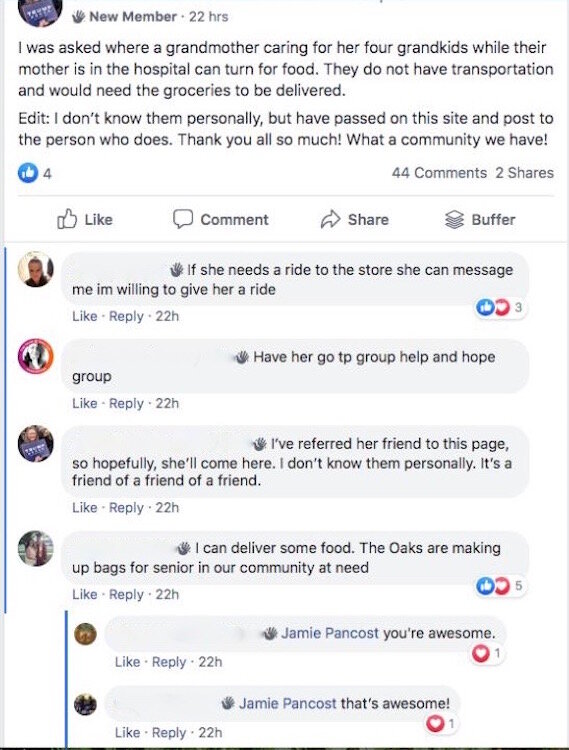
Since that time, she was able to find work with various nonprofits, in addition to volunteering to serve on boards and working with funders. She also started her own personal coaching business.
Just before Thanksgiving, 2019, she found herself out of work again and has been “staying afloat doing a potpourri of things” to earn money.
Too many people now, she says, are facing a moral dilemma about whether or not they should seek work outside the home because of the potential for spreading the coronavirus to others. In Otte’s case, she has elderly relatives that she checks in on and she doesn’t want to jeopardize their health.
“If you don’t have a job or can’t work from home, it becomes a moral issue of what are the consequences of going to work,” she says.
Fales says she thinks the fallout of the coronavirus is going to have class implications for a lot of people.
“A lot of people who are Middle Class are going to be put in places they haven’t navigated before. I haven’t navigated unemployment since my early 20’s. It’s a learning curve to navigate services you’ve never used before,” they say. “We’re all told that we can live that American Dream, but that’s just a fallacy and I think a lot more people who have been struggling are going to have to be much more honest about how they’re struggling and what that looks like.”
She says she can’t imagine what goes through the minds of people who have relied on organizations like Charitable Union or the Salvation Army just to get by watch people who have never had to use these services “freak out” and stand in line and express surprise about having to stand in lines or bring required documentation with them.
“Imagine how they must feel,” Fales says.

